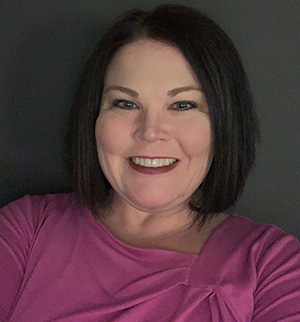




Purpose
To raise awareness of the availability of open-source standards for labeling and aligning academic content standards and English language development standards and improve educator access to digital resources for English Learners.
Participant Objectives
Participants will be able to:
-Describe what Competencies and Standards Exchange (CASE) is and explain why open-source, interoperable, machine-readable standards are important.
-Describe differences between state language development and content standards.
-Describe might be possible when CASE is applied to state language development and content standards and these labels are applied to digital resources
-Describe how educational technology specialists might support collaboration among classroom teachers and language specialists as they identify standards expectations and resources that align with those expectations.
10 minutes prior to session start:
Learn more about attendee's background and knowledge about WIDA using Mentimeter. [Mentimeter survey set to asynchronous delivery; so attendees can advance through questions at their own pace]
Presenter introductions/Session Overview
Mentimeter questions to start - https://www.menti.com/alynkx2dtso6
Results posted for 7 days at https://www.mentimeter.com/app/presentation/alwvv4e9k1rp6895hugsqizxx194ivgt
The WIDA English Language Development (ELD) Standards Framework
--Lynn provides key points of these standards for edtech specialists and content developers.
The Competencies and Academic Standards Exchange (CASE) specification
--Pepper provides an overview and description of what CASE is for and how it came about
--Ask participants: How do you think your organization might benefit from having standards coded in CASE format?
Georgia DOE’s use of CASE
--Angela explains why and how GaDOE coded their standards in CASE format, and how they came to want to use CASE to create their Title 1 /peer review conformance evidence.
WIDA + CASE = Cool stuff!
--Lynn, Angela, and Pepper explain how GaDOE, WIDA, and CGLT collaborated to get the WIDA standards into CASE format
--Invite participants to open and play around with the WIDA Digital Explorer on their phones or other devices. Go to http://standards.wida.us
--Angela shows GA’s alignments from content standards to WIDA standards in SuitCASE -
--Angela shows how teachers can access these alignments via Inspire
Newsela + CASE = More cool stuff in the future!
-- Alli discusses how Newsela is planning to take advantage of the WIDA CASE representation to make Newsela content even more useful for English language learners and their teachers
Final Thoughts for the Future: Developing Our Digital Resource Utopia
–Enables inter-product communication.
–Enable better collaborative planning and teaching among content and language teachers.
–What else could be done in the future?
Finalize with Mentimeter questions: https://www.menti.com/alynkx2dtso6
Butcher, N. and Hoosen, S. (2012). Exploring the Business Case for Open Educational Resources. Commonwealth of Learning (COL). https://oasis.col.org/items/df93f89e-4697-40a1-886f-49403f6ca232
Desimone, L. M., Stornaiuolo, A., Flores, N., Pak, K., Edgerton, A., Nichols, T. P., … Porter, A. (2019). Successes and challenges of the “new” College- and Career-Ready Standards: Seven implementation trends. Educational Researcher, 48(3), 167–178. https://doi.org/10.3102/0013189X19837239
Dove, M., & Honigsfeld, A. (2010). ESL coteaching and collaboration: Opportunities to develop teacher leadership and enhance student learning. TESOL journal, 1(1), 3-22.
Every Student Succeeds Act of 2015, Pub. L. No. 114-95 § 114 Stat. 1177 (2015-2016).
State Educational Technology Directors Association (SETDA). (2018). Leveraging Data for Academic Excellence. https://www.setda.org/master/wp-content/uploads/2018/05/State-Leadership-Interoperability.pdf
Villavicencio, A., Jaffe-Walter, R., & Klevan, S. (2021). “You can’t close your door here:” Leveraging teacher collaboration to improve outcomes for immigrant English Learners. Teaching and Teacher Education, 97, 103227.
U.S. Department of Education Office of Elementary and Secondary Education. (2018). A state’s guide to the U.S. Department of Education’s assessment peer review process. https://www2.ed.gov/admins/lead/account/saa/assessmentpeerreview.pdf
WIDA. (2020). WIDA English language development standards framework, 2020 edition: Kindergarten-grade 12. Board of Regents of the University of Wisconsin System. https://wida.wisc.edu/resources/wida-english-language-development-standards-framework- 2020-edition; 2020 WIDA Digital Explorer: http://standards.wida.us
https://www.menti.com/alynkx2dtso6 - interactive survey used during session; results posted for 7 days at https://www.mentimeter.com/app/presentation/alwvv4e9k1rp6895hugsqizxx194ivgt
http://standards.wida.us
http://www.imsglobal.org/activity/case/
https://inspire.gadoe.org/course/23.0010/320
https://voices.njtesol-njbe.org/annual-voices-journal-2023/streamline-your-unit/ - directions for using the WIDA Standards Digital Explorer
https://satchelcommons.com/